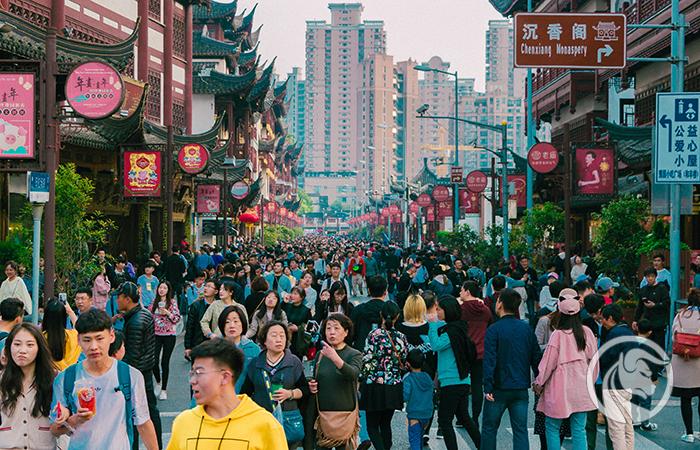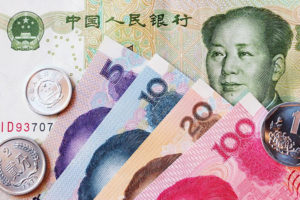Why are China's responses to economic challenges not working?
China's economy faces several challenges, including falling exports, sluggish domestic demand and crisis in the real estate sector. The economic recovery from the Covid-19 pandemic has been weaker than expected and sectors such as industrial production continue to struggle.
Poor data scares the rest of the world
Thursday's data from China showing falling exports added to fears of a slowdown in the world's second-largest economy as it struggles to recover from COVID-19. China's trade balance in dollars was 68,36 billion, below the forecast of 73,9 billion and below the previous forecast of 80,60 billion.
Both governments and markets are concerned about these indicators - the size of the Chinese economy and its connections with the rest of the world mean that any ups and downs are widely felt. Here's a look at the problems facing China's economy and why experts believe Beijing isn't doing enough to solve them:
- The lifting of strict pandemic restrictions in December marked the beginning of a gradual resumption of consumer activity in China, as people started eating out at restaurants, shopping and using public transport more often.
- However, the long-awaited economic rebound has been weaker than expected and has not spread to all sectors - for example, industrial production continues to struggle and has completely lost momentum.
- While many other major economies struggle with inflation, consumer prices in China fell 0,3% year-on-year in July, leading to deflation - a sign of weak demand.
- Youth unemployment rose so high in June that the authorities suspended the publication of these figures while traditional drivers of growth such as exports, real estate and consumption are stalled.
- These trends are increasingly pushing China's annual growth target of around 5% out of reach.
- Property development and related industries have been a key pillar of the Chinese economy in recent years, generating a significant portion of its GDP.
However, the industry is in a deep crisis
Many leading developers including Evergrande and Country Garden, have recently come under increasing financial pressure, with their astronomical debt levels bringing the risk of bankruptcy to the fore. Any implosion of these companies could have dire consequences for China's financial system, leaving huge numbers of unfinished housing units, mass layoffs and tens of thousands of people unable to recover their funds.
The turmoil in the real estate market is fueling doubts among potential buyers, increasing pressure on developers' budgets. The economy is also feeling the effects of weak global demand, which has affected Chinese exports and reduced domestic household spending. In a bid to shore up its finances, China has opted for cautious and targeted measures rather than a broader but costly recovery plan.
In July, the authorities presented steps to stimulate the purchase of household appliances and electric vehicles. Tax breaks were then introduced for households and businesses to support consumption. To further stimulate activity, China's central bank recently cut two benchmark rates, hoping to encourage commercial banks to lend more on more attractive terms. But the most important announcement - aimed at the country's flagging real estate industry - was made last week.
In an effort to revitalize the sector, several major cities, including Beijing, Shanghai and Guangzhou, have relaxed the eligibility criteria for mortgage loan. First-time buyers also obtained more preferential loan interest rates. In recent decades, Chinese consumers have viewed purchasing real estate as the best way to increase their savings.
However, widespread economic uncertainty remains the main obstacle to a recovery in consumption. Households currently prefer "savings instead of expenses or investments". Many economists say a major stimulus plan is needed to get the Chinese economy back on track.
In the wake of the global financial crisis in the late 548s, China invested four trillion yuan (now $XNUMX billion) to stimulate economic activity. This expansive recovery plan enabled significant development of the country's infrastructure, triggering a construction boom in roads, airports and high-speed rail. But it also resulted in many unused projects and increased debt. Beijing now appears wary of this strategy as the pandemic has depleted local government coffers.






















![Forex Club – Tax 9 – Settle tax on a foreign broker [Download the Application] Forex Club - Tax 9](https://forexclub.pl/wp-content/uploads/2024/02/Forex-Club-Podatek-9-184x120.jpg?v=1709046278)
![Trading View platform – solutions tailored to the needs of traders [Review] trading view review](https://forexclub.pl/wp-content/uploads/2024/03/trading-view-recenzja-184x120.jpg?v=1709558918)
![How to connect your FP Markets account to the Trading View platform [Guide] fp markets trading view](https://forexclub.pl/wp-content/uploads/2024/02/fp-markets-trading-view-184x120.jpg?v=1708677291)
![CRB index – one of the popular commodity market benchmarks [Guide] crb index](https://forexclub.pl/wp-content/uploads/2024/05/indeks-crb-184x120.jpg?v=1715055656)
![How to invest in ChatGPT and AI? Stocks and ETFs [Guide] how to invest in chatgpt and artificial intelligence](https://forexclub.pl/wp-content/uploads/2023/02/jak-inwestowac-w-chatgpt-i-sztuczna-inteligencje-184x120.jpg?v=1676364263)






![Izabela Górecka – “Success on the market depends not only on knowledge, but also on emotional stability” [Interview] Izabela Górecka - interview](https://forexclub.pl/wp-content/uploads/2024/04/Izabela-Gorecka-wywiad-184x120.jpg?v=1713870578)
![WeWork – the anatomy of the collapse of a company valued at $47 billion [WeWork, part II] wework bankruptcy story](https://forexclub.pl/wp-content/uploads/2024/04/wework-bankructwo-historia-184x120.jpg?v=1711729561)
![Adam Neumann – the man who screwed up Softbank [WeWork, part AND] adam neumann wework](https://forexclub.pl/wp-content/uploads/2024/04/adam-neumann-wework-184x120.jpg?v=1711728724)

![The most common mistakes of a beginner trader - Mr Yogi [VIDEO] Scalping - The most common mistakes of a beginner trader - VIDEO](https://forexclub.pl/wp-content/uploads/2024/03/Scalping-Najczestsze-bledy-poczatkujacego-tradera-VIDEO-184x120.jpg?v=1711601376)
![Learning patience: No position is also a position - Mr Yogi [VIDEO] Scalping - Learning patience - No position is also a position - VIDEO](https://forexclub.pl/wp-content/uploads/2024/03/Scalping-Nauka-cierpliwosci-Brak-pozycji-to-tez-pozycja-VIDEO-184x120.jpg?v=1710999249)
![When to exit a position and how to minimize losses - Mr Yogi [VIDEO] Scalping - When to exit a position and how to minimize losses - VIDEO](https://forexclub.pl/wp-content/uploads/2024/03/Scalping-Kiedy-wyjsc-z-pozycji-i-jak-minimalizowac-straty-VIDEO-184x120.jpg?v=1710336731)



















Leave a Response